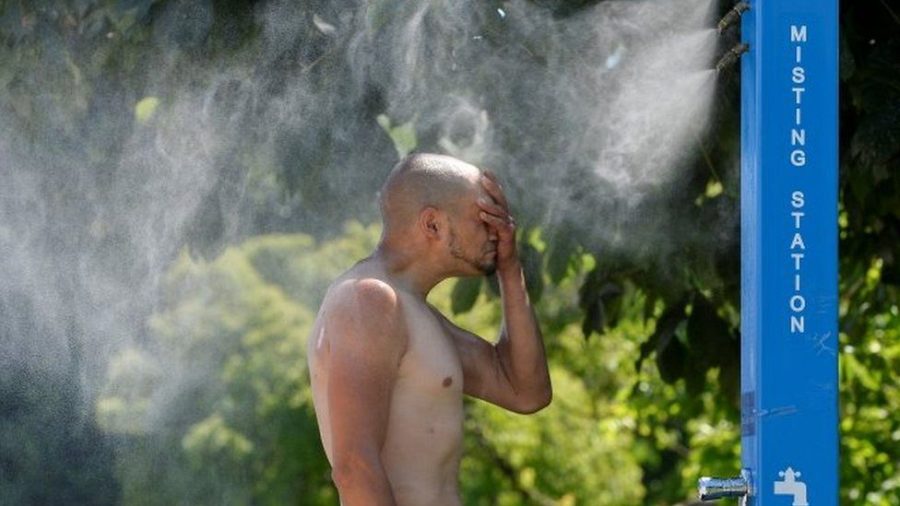Hundreds of people have died in Canada as a result of an extreme heatwave that has broken all previous records.
Since Friday, police in the Vancouver region have responded to more than 130 unexpected fatalities. The majority were old or had underlying medical problems, with heat being a major role.
On Tuesday, Canada set a new temperature record of 49.6 degrees Celsius (121.3 degrees Fahrenheit) at Lytton, British Columbia.
Extreme weather phenomena, such as heatwaves, are anticipated to become more common as a result of climate change, according to experts. However, it is difficult to connect anyone occurrence to global warming.
A dome of stagnant high-pressure hot air extending from California to the Arctic regions has produced heat across western Canada and the United States. Temperatures have been cooling down in coastal locations, but interior areas aren’t seeing any relief.
Temperatures in Canada never exceeded 45 degrees Celsius until Sunday.
Premier John Horgan of British Columbia claimed the province’s warmest week has resulted in “disastrous repercussions for families and communities.”
As several regions claim to have reacted to sudden death events but have yet to compile the statistics, the number of heat-related deaths is expected to increase.
Heat is thought to have been a significant factor in the deaths of 65 individuals in Vancouver alone since Friday.
“I’ve been a police officer for 15 years and I’ve never experienced the volume of sudden deaths that have come in in such a short period of time,” police sergeant Steve Addison said. Three or four a day is the normal number.
People were “finding them deceased” when they arrived at relatives’ houses, he added.
Hundreds of policemen have been reassigned across the city, while an increase in the number of emergency calls has resulted in a backlog and a reduction in police resources.
From Friday to Monday, British Columbia Chief Coroner Lisa Lapointe said there had been 100 more fatalities.
All of Canada’s recent record highs have been set at Lytton, a little town about 155 miles (250 kilometers) east of Vancouver and not far south of London.
Meghan Fandrich, a resident, described going outdoors as “almost impossible.”
She told the Globe & Mail newspaper, “It’s been intolerable.” “We’re trying to stay indoors as much as possible. We’re used to the heat, and it’s a dry heat, but 30 [degrees] is a lot different from 47.”
Many houses in British Columbia do not have air conditioning since summer temperatures are typically much warmer. In the Vancouver region, temporary water fountains and cooling centers have been put up.
Environment Canada, the country’s meteorological agency, has issued heat warnings for parts of British Columbia and Alberta, as well as Saskatchewan, the Northwest Territories, and Manitoba.










